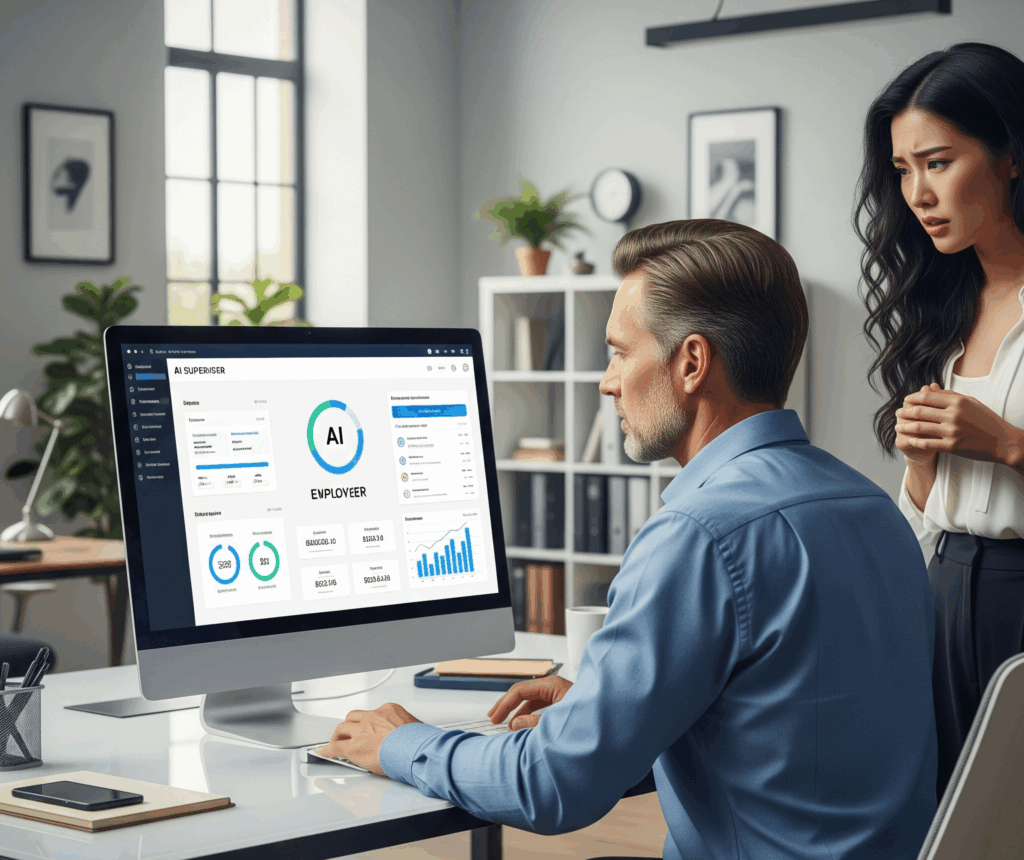Artificial intelligence (AI) is rapidly changing how workplaces operate, from automating hiring to analyzing your performance. While AI promises efficiency and fairness, there's a growing concern: it might inadvertently carry over or even worsen existing biases, leading to discrimination against employees like you. If you suspect AI is playing a role in unfair treatment at work, here's what you need to understand.
AI Is Everywhere in Today's Workplace
More and more, companies are using AI for various HR tasks:
- Hiring: AI tools screen resumes, conduct initial assessments, analyze video interviews, and even target job ads.
- Performance: AI can track your productivity, contribute to your performance reviews, and even influence promotion recommendations.
- Monitoring: AI-powered systems can monitor keystrokes, internet activity, and other metrics to assess your efficiency.
The idea behind using AI is often to remove human bias. But in reality, it's much more complicated.
How AI Can Lead to Discrimination Against You
The core issue lies in how AI learns: it's trained on massive amounts of past data. If this data reflects old biases or societal inequalities, the AI will learn and repeat those patterns, potentially leading to discriminatory outcomes for you. Here are key ways AI can discriminate:
- Historical Bias: If your company historically hired more men for leadership roles, an AI trained on that data might disproportionately favor male candidates, even if it's not programmed to do so.
- Algorithmic Bias: The way an algorithm is designed or the factors it prioritizes can unintentionally lead to discrimination. For instance, an AI might favor candidates from specific universities, accidentally overlooking qualified people from other backgrounds. AI can also use seemingly neutral data points (like your zip code) as stand-ins for protected characteristics like your race.
- "Black Box" Problem: Many AI algorithms are incredibly complex, acting like a "black box." This makes it hard to understand how they reach their decisions. This lack of transparency makes it tough to spot and fix biases, and for you to challenge decisions you believe are unfair.
- Unintended Impact: Even if an AI system is designed to be neutral, it can still have an "unintended impact" if it disproportionately screens out or disadvantages people from a protected group (e.g., based on your race, gender, age, disability, religion, or national origin). This is a significant legal concern.
Your Rights and What You Can Do
Existing anti-discrimination laws, like Title VII of the Civil Rights Act, the Age Discrimination in Employment Act (ADEA), and the Americans with Disabilities Act (ADA), apply to AI-driven decisions just as they do to decisions made by people. The Equal Employment Opportunity Commission (EEOC) is actively working to address discrimination in AI and other new technologies.
If you suspect your employer is using AI to discriminate against you:
- Document Everything: Keep detailed records of all communications, AI-driven decisions (like automated rejection emails), and any patterns you notice.
- Report to HR: Talk to your HR department or compliance team about your concerns. Ask for clarification on how AI tools are used and how decisions are made.
- Gather Evidence: Collect any evidence of AI-driven decisions that seem unfair or biased. This could include rejection emails, performance review scores, or job ad targeting.
- Seek Legal Counsel: Talk to an attorney specializing in employment law. They can help you understand your rights, evaluate your case, and explore legal options, which might include filing a complaint with the EEOC or pursuing a lawsuit.
- Check Local Laws: Some states and cities are creating specific laws to regulate AI in employment, requiring bias checks and transparency. Your attorney can advise you on any relevant local rules.
While AI offers immense potential for workplaces, it's crucial that its use is fair, transparent, and doesn't discriminate against you. If you believe you've been subjected to AI discrimination, contact Sani Law today.


